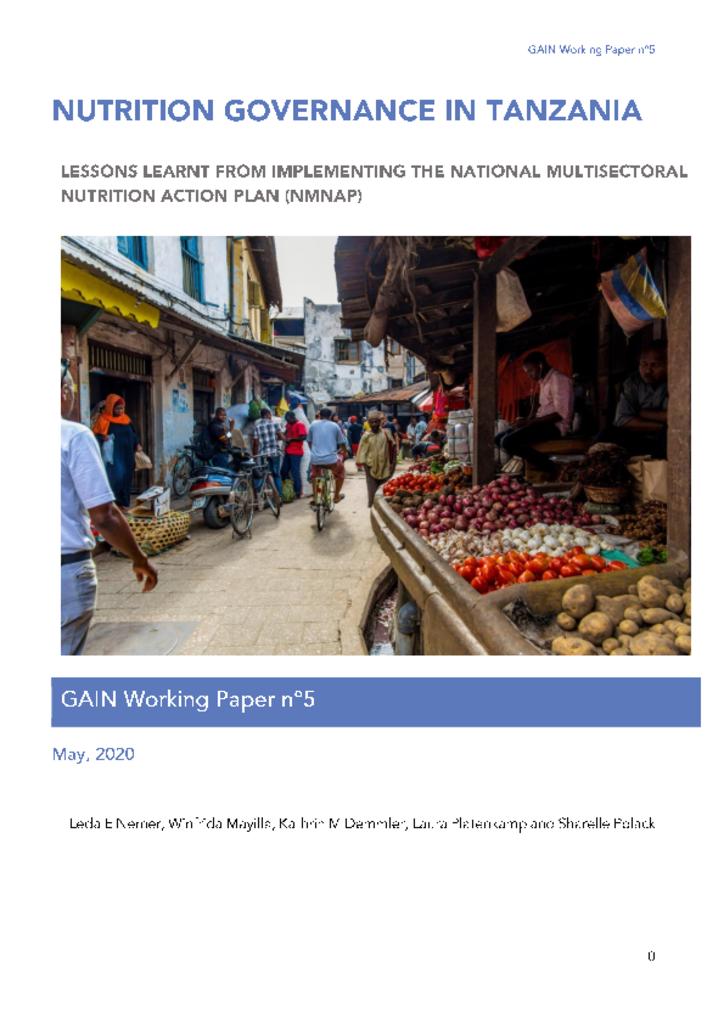In 2016, Tanzania put in place a nutrition action plan that would seek to go beyond previous action plans and strategies. The Prime Minister’s Office took the lead in developing a nutrition action plan that not only had ambitious goals and targets but also explicitly called on other sectors to join the country’s fight against malnutrition.
Today, the National Multisectoral Nutrition Action Plan (NMNAP) provides Tanzania with a strong system for multisectoral nutrition governance at all levels. NMNAP has successfully helped to make nutrition a priority in the country, even within other government departments. The government’s financial commitment to nutrition has increased over time as the result of continued advocacy; nutrition officers are in place at regional and district levels, and NMNAP impact targets are being gradually reached. Accountability for achieving nutrition goals has been strengthened due to the establishment of a National Nutrition Compact between the central government and the regions, and sufficient data is now generated to monitor and evaluate the performance of the NMNAP.
As a result, multisectoral coordination and cohesive alignment with national priorities has improved at all levels. Continued engagement of partners from non-nutrition sectors will help strengthen NMNAP implementation to achieve better impact. Operationally, the fact that nutrition-related activities are now under one umbrella has made for more cohesion in planning and implementation. Challenges remain, such as limited human resources capacity to make a broad policy operational at the local level; devising a new way of working across sectors; and the urgent need to increase coverage of both nutrition-specific and -sensitive interventions.
However, several key messages from Tanzania’s experience are applicable to other countries or regions struggling with similar issues.
